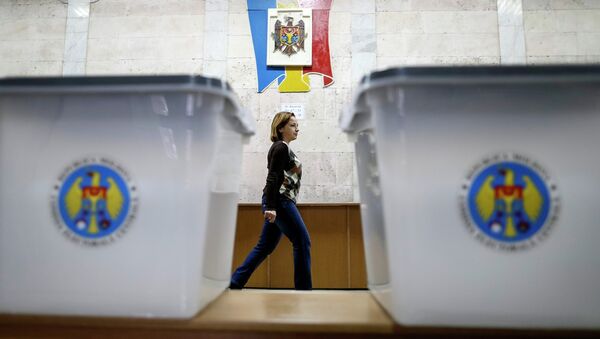One can only attribute these absurdities to a lack of knowledge about the history of Moldova, which, as the New York Times notes, “no sitting American president ever visited.” Obviously, for the New York Times this is a sign of hopeless provincialism and a green light for writing inanities about this area, including the lies about Moscow’s plans to make it a part of a “new Russia” encompassing the territories of eastern Ukraine, Odessa and Transnistria – a claim which lacks any basis in fact.
Unfortunately, the plan was sabotaged at the last minute by OSCE officials and the then-president of Moldova, Vladimir Voronin, the leader of Moldova’s Party of Communists (a position he still holds). The plan never became a reality, because, as the OSCE officials admitted, Europe could not accept Russia in the role of the main peacemaker. So, Chisinau and Tiraspol have remained at loggerheads since then and the situation in the region is tense even now, especially after Chsinau and the new “pro-European” government of Ukraine imposed an economic blockade on Transnistria.
The current elections in Moldova have been praised in the West as “democratic,” since they are dominated by the so-called Alliance for European Integration, which had ruled Moldova between 2009 and 2013. This alliance was created by three parties with similar names (the Liberal party, the Democratic party and the Liberal-Democratic party) after an outbreak of civil unrest in 2009, which now appears to have been a rehearsal for the recent Maidan coup in Kiev. Moldova was then ruled by President Voronin, whose communist credentials, quite contrary to the narrative of The Wall Street Journal and The New York Times, never made him a friend of Russia (only in the troubled mind of John McCain does Russia remain a dictatorship with communist allies around the world where everyone reads the Daily Pravda).
However, the two countries’ bad relationship, which included the much-lamented (by the New York Times) Russian embargo on Moldovan wine imports, which was enforced in the mid-2000s even more strictly than now, did not save Mr. Voronin from a US-supported coup. And here we come to the REAL New Cold War-style saga, not the WSJ’s inanities. In April 2009, a violent crowd of “anti-communist” students ransacked the Moldovan parliament building. The Western media put all the blame on the government, admiring the students’ ability to organize themselves via Twitter (only two years later, during the riots in London, British youngsters would get long terms in jail for the same kind of Twitter-inspired pogroms). Whatever the context, early elections were called in 2009, and that was the REAL aim of the riots.
“The elections of 2009 were won by the parties which later formed the Alliance for European Integration, and after that these people never ceded power, and they won’t cede it peacefully in future,” says Svetlana Gamova, the main Moscow-based analyst on Moldova, who for almost 20 years served as Nezavisimaya Gazeta’s Chisinau correspondent. “In fact, the scheme later used in Kiev: “riots-control of the parliament building – early elections – iron grip on power” – this plan of action was first tested in Moldova,” Gamova said.
It appears that the new election will be no exception to this rule. The local court has already taken a very promising opposition party, Patria, off the ballot. The Constitutional Court recently stated that “opposing Moldova’s European integration” was an illegal activity. Meanwhile, polls show that 43 percent of Moldovans prefer integration with Russia and its Customs Union to the murky “European perspectives” promised by an Association Agreement which Moldova recently signed with Brussels. But who in Brussels has ever cared about the opinion of the electorate in Moldova, Ukraine – or in its own member states, for that matter? The battle has already been won by fists and Molotov cocktails – in 2009 in Chisinau and in 2014 in Kiev.
The views expressed in this article are solely those of the author and do not reflect the official position of Sputnik.






